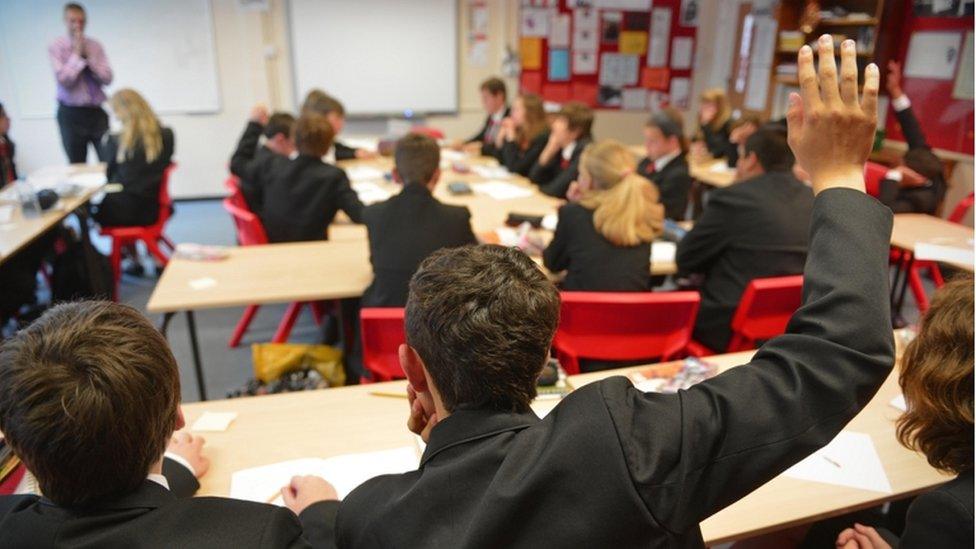Limit on school admissions objections urged
- Published

Parents can raise admissions concerns with the schools adjudicator
Pressure groups are making multiple objections to school admissions arrangements to influence wider policy, England's schools adjudicator says.
Elizabeth Passmore says the government may wish to limit who can raise concerns to her office over admissions.
She says such complaints have increased her caseload and waste public money.
A Department for Education spokesman said they wanted every child to have "the opportunity to go a good local school".
In the schools admissions watchdog's report, Dr Passmore says multiple objections from pressure groups contributed to an increase in her office's costs from £815,000 to £1,113,000 last year.
She is responsible for investigating and ruling on complaints about allocation of places and school admission policies.
'Public money'
Dr Passmore says that dealing with objections over school admissions from those with "no connection in terms of seeking a place for their child" is "not good use of an adjudicator's time and public money".
In her recommendations, she says: "The DfE may wish to reconsider who can make an objection to the arrangements for a particular school, possibly limiting it to those with proper standing for making the objection.
"There have been instances of pressure groups and individuals making use of the provision to object, when it appears to be more about trying to influence a policy matter than concern about the arrangements of a school for which parents might legitimately be considering applying for a place for their child."
She adds that some campaign groups, with particularly strong views about certain matters, are raising objections to schools "that appear to be more about trying to influence further changes to admissions law".
Numerous complaints about minor administrative errors on admissions policies of some faith schools were made, for example.
The Comprehensive Future admissions pressure group argues that parents often only came across "unfairness" in school admissions when it was "too late to object".
The Fair Admissions Campaign recently published a report claiming that many religiously selective state schools in England, which control their own admissions, are breaking admissions rules.
It claimed to have revealed "near-universal non-compliance" with the School Admissions Code by religiously selective state secondary schools.
'Vexatious complaints'
Paul Barber, director of the Catholic Education Service said: "We do not think it is fair that the time of school staff is taken away from supporting pupils to respond to vexatious complaints which serve only to fulfil the campaigning purpose of one organisation.
"Referring a school to the Office of the Schools Adjudicator for campaigning purposes hinders legitimate referrals from parents, the local community, dioceses and local authorities.
"School admissions are extremely complex and are accompanied by hundreds of pages of legal framework. Most breaches of the School Admissions Code are found to be unintended administration errors."
But Rabbi Dr Jonathan Romaine, for the Fairer Admissions Campaign, said the findings in the adjudicator's report build on his organisation's own work in recognising recurring problems, particularly around the current guidance on religious selection.
"We welcome the fact that the OSA has taken on board findings of our report and has started drawing attention to many of these issues it identifies.
"How the system can best serve the common good is open to debate. Being able to make complaints about a sample of schools, as we did, enabled us to make a series of extrapolations about systemic problems, which is clearly in the public interest."
A DfE spokesman said: "The Chief Adjudicator's annual report helps us identify how we can continue to improve the admissions framework to ensure fair access for all children. We will review her findings and take action where appropriate."
It comes as hundreds of thousands of parents wait to hear whether their child will get into their preferred primary school after submitting applications last week. Parents will find out which school they have been offered in mid-April.
- Published5 December 2015

- Published8 January 2016
